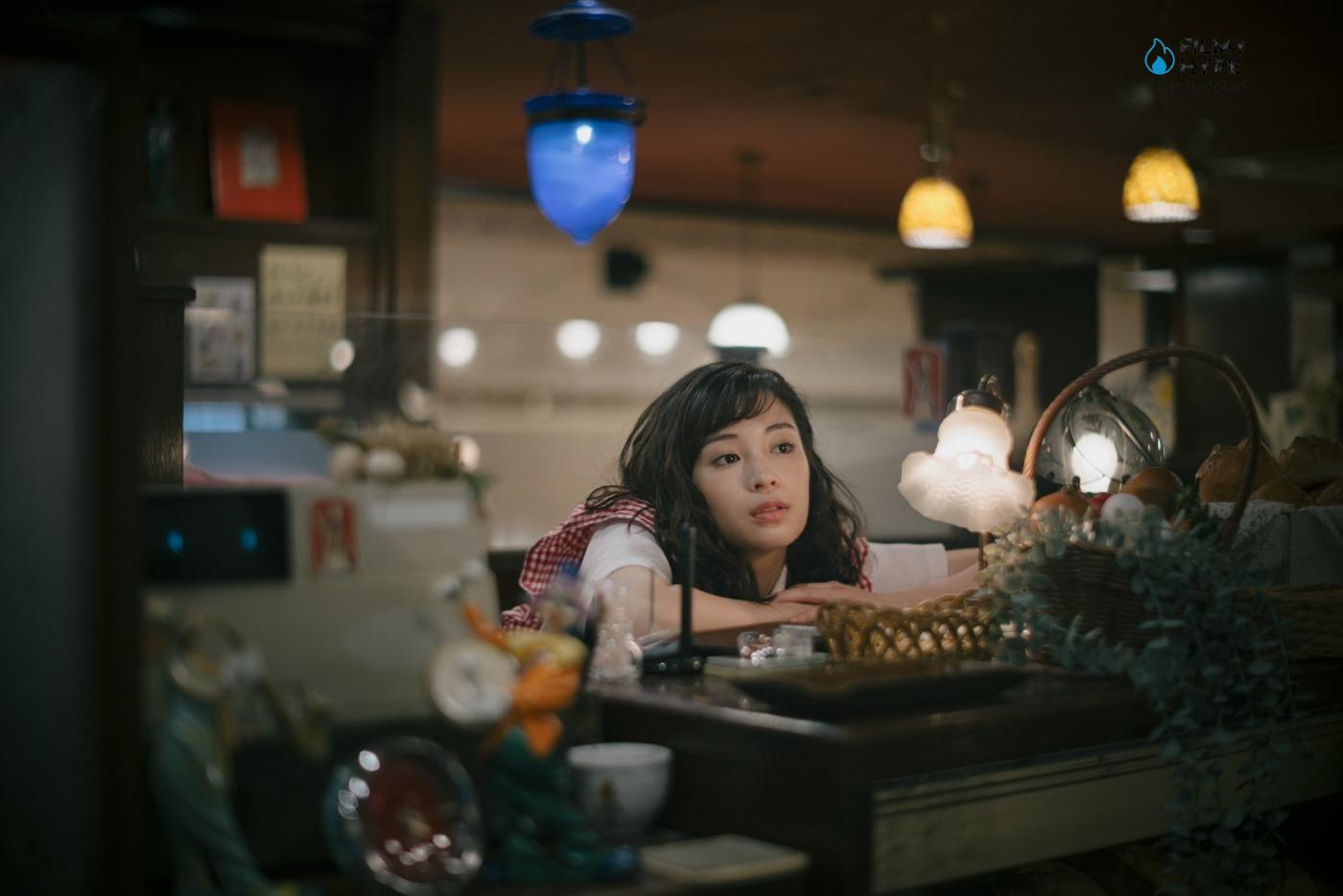Asura Series Review: Netflix’s Japanese Series Giving Life To A Choral Story Made Of Lies, Affections And Betrayals
Asura, the new series directed by Hirokazu Kore-eda and available on Netflix from January 9, 2025, represents one of the most intimate narratives of the famous Japanese director. Based on Kuniko Mukoda’s novel Ashura no Gotoku, the story follows four sisters who, after discovering their father’s infidelity, find themselves confronting family secrets, conflicts, and the search for their identity. Set in Japan in the 1970s, the series uses the Buddhist myth of the Asura, creatures tormented by internal passions and conflicts, as a metaphor for human relationships and the contrasting emotions that cross the characters. A seven-episode series – a remake of a famous Japanese drama from the seventies (Like Asura) – which tells the family and sentimental events of four sisters in Japan in 1979, between secrets, lies, and betrayals.
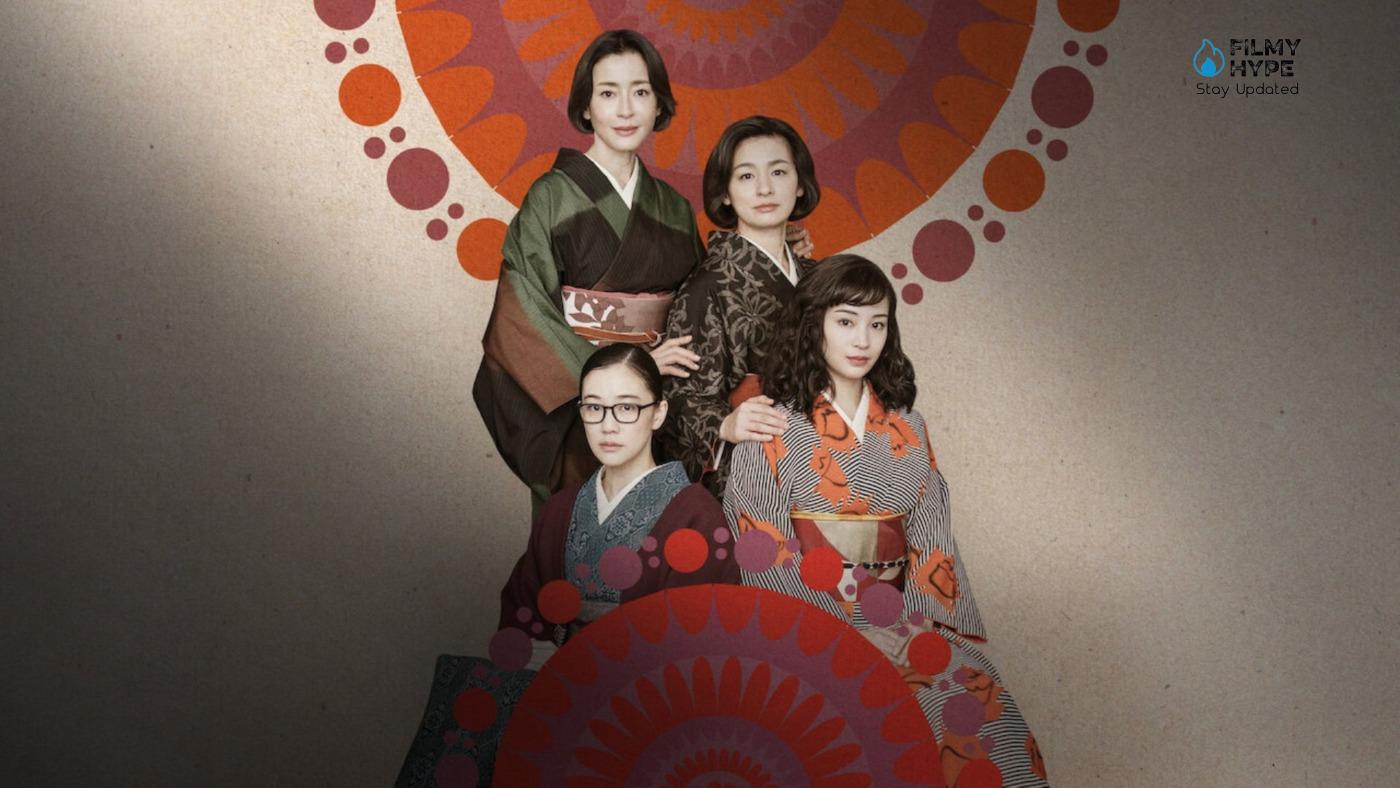
An intimate but also universal story, where themes concerning the role of women in a society like the Japanese one are accompanied by the apparent lightness of a director capable of mixing different tones and genres, dosing the tragedy with comedy in an almost imperceptible way. After having already ventured with seriality in the interesting Makanai (always on Netflix), the story of an elective family of maiko in Kyoto, and after the last, beautiful feature film Innocence, Kore-eda returns to the serial format, this time adapting another series and placing at the center of its story the emotions and conflicts, more or less retained, of four sisters and their respective affections. The result is a work that, although less incisive than the best works of the author, knows how to trace the fresco of a humanity victim of its feelings, lies, and prejudices but still capable, despite everything, of still loving.
Asura Series Review: The Story Plot
When Takiko (Yu Aoi) informs his three sisters of the extramarital affair of the elderly father, the world of certainties on which their family stood seems to collapse. Soon the problems seem to multiply, going well beyond the elderly parent couple. Makiko (Machiko Ono), wife and mother of the family, begins to suspect more and more of her husband; Tsunako (Rie Miyazawa), widow, lives her relationship with a married man between continuous second thoughts and guilt; Sakiko (Suzu Hirose), the youngest, remains stubbornly linked to a young boxer who would like to break through; while Takiko herself, single and repressed, seems unable to manage a conventional relationship. The awareness of the father’s betrayal will thus lead the four women to question themselves more and more not only about their role as daughters but also about women, wives, mothers and sisters. Between betrayals, misunderstandings, quarrels, and complicities Takiko, Sakiko, Tsunako and Makiko will however be able to strengthen their bond despite a world (of men) that cannot fully understand and respect them.
Asura Series Review and Analysis
Kore’eda confirms its unique talent in transforming everyday life into a universal experience. The slow and reflective rhythm of the narration allows you to explore in depth the emotions and conflicts of the characters, emphasizing the unspoken and the smaller gestures. Each sister lives a personal struggle that is intertwined with those of the others, creating a network of authentic and complex relationships. Kore’eda avoids melodrama, preferring a more realistic and minimalist approach, which invites the viewer to reflect on the beauty and fragility of human relationships. This style, which favors silence and introspection, allows you to enter the life of the protagonists with a rare intensity. The director manages to balance moments of emotional tension with moments of lightness, adding touches of humor that lighten the narrative without ever diminishing its importance. The series thus becomes an emotional and contemplative journey, capable of involving and moving deeply.
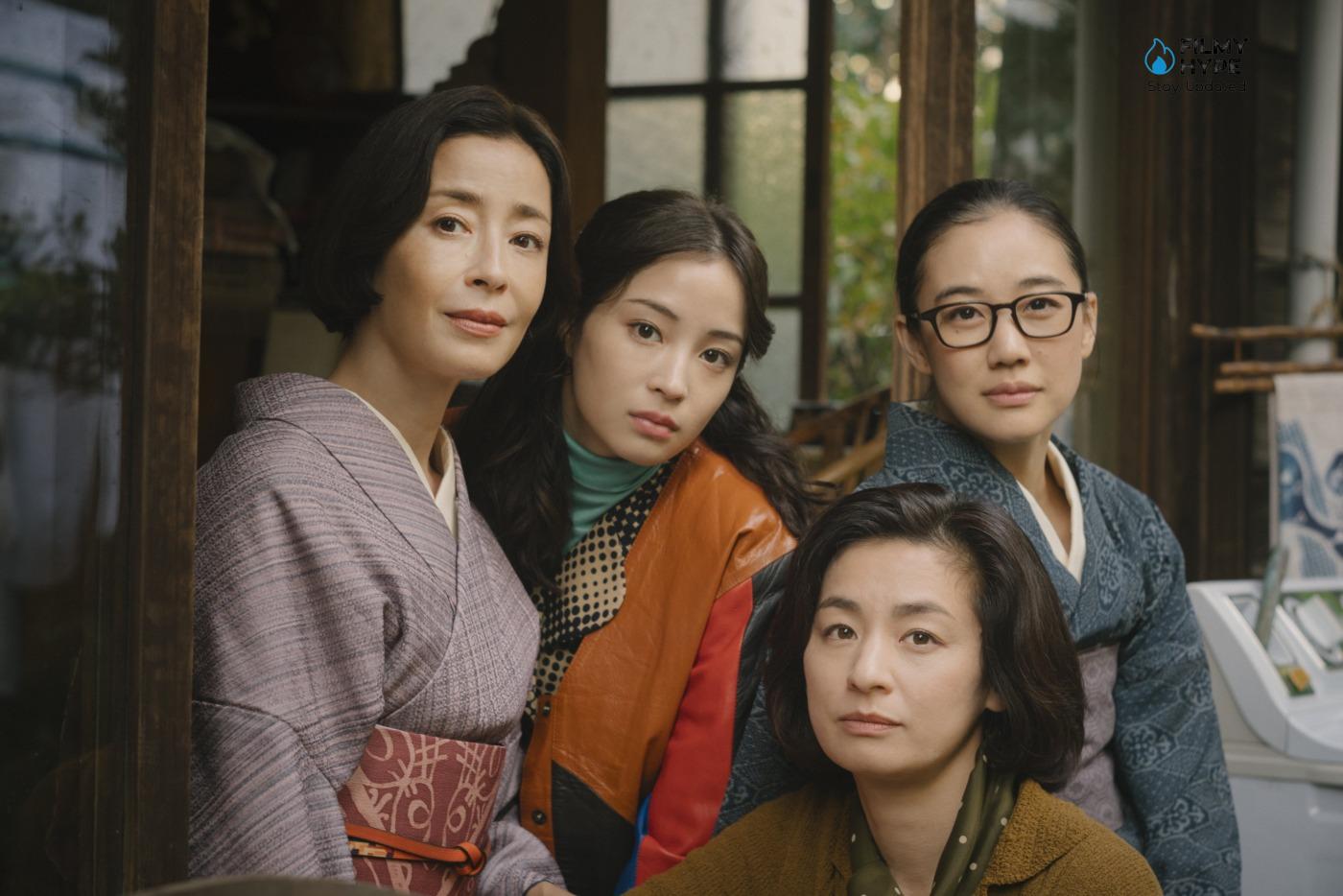
One of the most fascinating aspects of “Asura” is the careful historical reconstruction of Japan in the 1990s ’70. Photography, characterized by warm and nostalgic tones, perfectly captures the atmosphere of an era poised between modernity and tradition. Every detail, from the sets to the props, contributes to creating a credible and immersive world, which acts as a perfect frame for the events of the sisters. Traditional houses, crowded markets, and lively streets evoke a bygone era, but still alive in the memories of those who lived in it. The soundtrack also plays a fundamental role, accompanying the most significant scenes with delicate and suggestive melodies, which amplify the emotions without ever being intrusive. Kore’eda uses this historical reconstruction not only to enrich the context but also to explore the cultural and social tensions of the time, adding further depth to the narrative. This accurate and engaging portrait makes Asura a window into the past that invites the viewer to immerse themselves completely in history.
The cast interpretations are one of the strengths of Asura, with actresses who manage to create multifaceted and credible characters. Each of the four sisters is characterized by a unique personality, which reflects the different nuances of family dynamics. Through their performances, the series explores themes such as the sense of belonging, the search for independence, and the desire for reconciliation. Kore’eda, as always, demonstrates an extraordinary ability to direct its actors, enhancing their expressiveness and the ability to transmit complex emotions naturally. The narration develops gradually, allowing the characters to evolve organically and realistically. Secondary characters also help make the world of Asuravivid and authentic, adding further levels of complexity to the story. With this series, Kore’eda offers a profound and touching reflection on the family, reminding us that, despite the difficulties and conflicts, human ties remain the foundation of our existence.
It is always the family, for Kore-eda, the test bench for testing absolute and universal feelings. An often-disastrous battleground, behind whose apparent serenity are hidden ghosts, secrets, and uncontestable lies. It’s no exception either Asura, second incursion by the author of Little Sister is Father and Son in Netflix seriality as well as yet another piece of poetics now perfectly recognizable. In the intimate, circumscribed, and private events of the protagonist sisters and of the small world of affections, loves and betrayals that gravitates around them, there is already in fact all the cinema of the Japanese director, all the sensitivity of an author who has always been at ease with the complexity of human and family relationships. A peculiarity of gaze that this time is explicitly grafted into the ways and times of a soap opera, adapting an old “dorama” famous at home through an unprecedented look. The result is a series that does not betray its melò and episodic nature, but which lends itself perfectly to the director’s only light tones, to his ability to combine comedy and tragedy in a dense mix of practically inseparable depth.
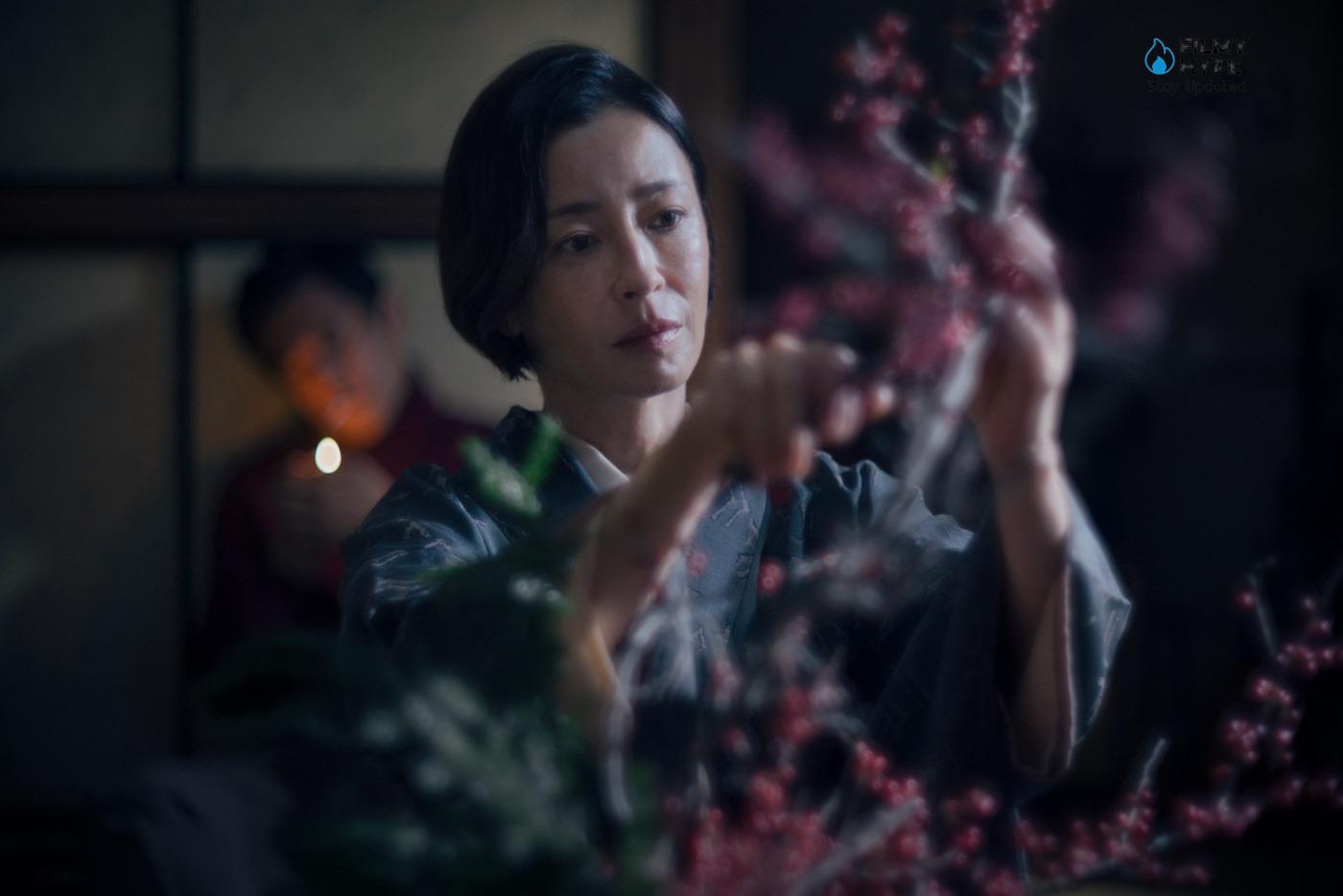
In the apparent calm of the daily life of the four sisters, it thus goes on stage a story where drama accompanies laughter and feelings often remain held back, hidden behind squabbles and surface tensions. Although conflicts, unlike in Makanai, are on the agenda there are no mother scenes, in Asura (as, moreover, in the rest of the director’s cinema). A world where the outburst is limited to rare moments of intimacy and the open clash can only exist in one dimension “another” (the dream or the same acronym, in which the protagonists scream and throw objects against their respective partners), while silences, unspoken and secrets are the masters. Yet, it is precisely in the silence and unspoken that Kore-eda knows how to find the soul of its protagonists, their doubts, their desires, and their role in a world made up of men who never really understand them. This is how the discovery of the father’s extramarital relationship becomes the spark to fathom buried relationships and relationships hitherto, the yardstick with which to take stock of one’s love and emotional life.
“Does running smoothly make women happy?”, ask the protagonists of Asura on several occasions. Better to pretend nothing, in short, embodying a sedentary and patriarchal ideal of model wives and mothers until this inevitably goes tight (the elderly mother, Makiko) or make her voice heard, in one way or another, mirroring perhaps, precisely those impregnable Indian divinities (the Asuras of Vedic mythology), proud and at the same time fragile, virtuous and problematic, from which the series takes its name. Self Makanai demonstrated how it was possible to develop a series even in the absence of conflicts, Asura shows how even the simplest and most banal conflicts can be told from an unprecedented perspective, from a lateral gaze capable of grasping even the most obvious nuances, transforming the vicissitudes of a family like many into something unique and at the same time universal. A series capable of involving thanks to the only strength of the feelings, explicit or not, staged and to the portrait, multifaceted and very human, of its protagonists.
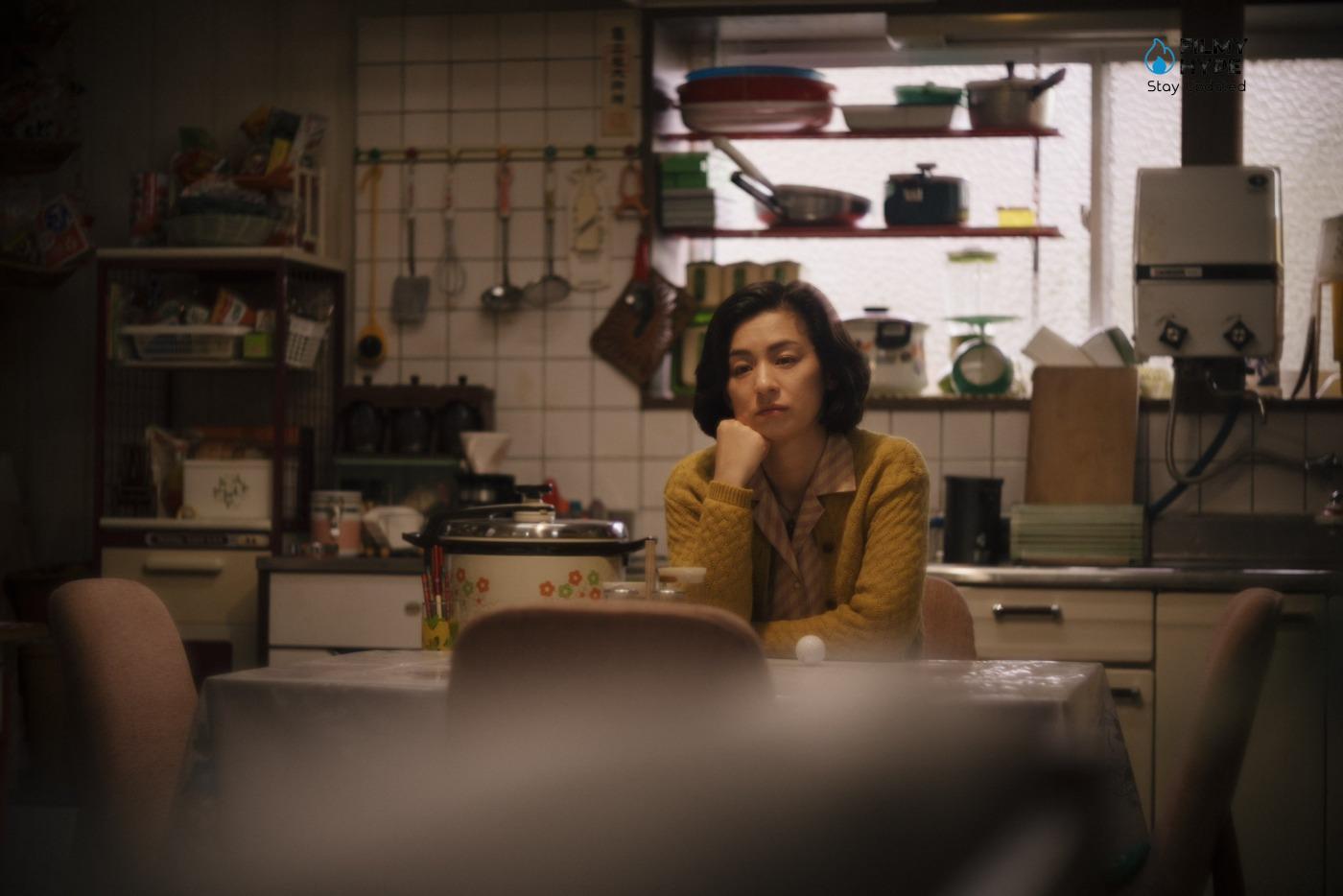
It all starts when Takiko calls them to meet. But it soon becomes clear that this is not just another meeting. The girl has discovered –first casually and then hiring a private detective – that her father not only has a lover but also has a son with her, 8 or 9 years old, and that two days a week that says going to work is actually going to be with them. The news is a big shock, but most sisters prefer to pretend nothing is wrong. They don’t want to see the photos they present to them and, in their way, “feign dementia”. At most one will say that it is almost a right of men and that it is not so serious. Takiko is not only hurt by the news but also mortified by the lack of reaction. In any case, despite the initial denial, the daughters begin to become aware of the situation and wonder what to do about it. Face the circumspect father? Tell the mother and ruin her golden years? Many suppose that she knows it, in one way or another, and the lady also prefers to look the other way. Others, no. Those who also have an opinion are the husbands and partners of all. Most seem to agree that it is best to turn a blind eye and let it pass. It is there that the letter appears in the newspaper and all suspect that it was another of them who sent it. Or, well, it could be anyone, anywhere in the country. And not just from Japan.
ASURA is based on a Kuniko Mukōda novel that has already been adapted into movies and television previously. Beyond the father’s particular case, what the series narrates is the life of the family from each of the characters, exploring their lives and their connections, putting as its main axis the situation of submission of many women who, as I said the letter, they prefer to remain silent and endure rather than break the social and family stability in which everyone lives and they sustain themselves. Tsunako has a casual partner who is married, Makiko suspects that her husband is cheating on her, Takiko comes and goes into a relationship that doesn’t start with the detective in question and Sakiko deals with her boxer boyfriend as best he can. They all, in their way, deal with complex and tangled situations, which the series explores in each episode.
The Kore-eda fort always goes through painting these ambiguous family relationships and the series stands out particularly for the way it shows camaraderie, not without fights and problems, among the sisters, who enjoy their talks, jokes, meals, and some encounters with his mother (the father, silent, always seems to be in his own). Nor are the characters judged or condemned for their attitudes. Kore-eda is, in that sense, an empathetic, understanding filmmaker who manages to make people see the reasons, wrong or not, that lead people to act in the way they act. For the third episode, some striking things will happen that will change, to a certain extent, the narrative axis of the series. But not his themes. On the contrary, in a way, they will reinforce it.
Asura Series Review: The Last Words
Beyond playing with a plot that, at times, has a certain relationship with the soap opera and an accumulation of coincidences and unexpected connections more typical of a newsletter, Kore-eda maintains a certain distance from any melodramatic record, preferring to narrate the surprising derivations of the life of the protagonists with that calm and observational tone that characterizes their work, both in film and television. Although his work in series is never entirely up to his cinema –without knowing in depth the Japanese television industry gives the impression that it is sustained in more commercial formats and accessible from the staging, performances, and music –, ASURA It is a solid, complex work, full of interesting edges and very rich characters. Humanist, warm, at times fun, and always full of fascinating details of Japanese culture, ASURA is the first major series of 2025.
Cast: Rie Miyazawa, Machiko Ono, Yu Aoi, and Suzu Hirose
Director: Hirokazu Kore-eda
Streaming Platform: Netflix
Filmyhype.com Ratings: 3.5/5 (three and a half stars)



